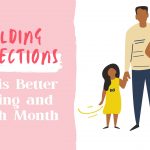It’s estimated that roughly 48 million Americans are dealing with some form of hearing loss. That’s about 14% of the total population of the U.S. About ⅓ of those over age 60 have hearing loss, and it jumps to ⅔ of people aged 75 and up. Nearly 100% of centenarians have hearing loss, suggesting that we will all have hearing loss eventually, if we live long enough. Age-related hearing loss (presbycusis) is the most common form of hearing loss in America.
Unfortunately, presbycusis is drastically undertreated in America today. People tend to wait 5 to 15 years from the time they notice themselves having trouble hearing to the time they schedule a hearing test and do something about it. Two-thirds of those with untreated hearing loss explain their hesitancy to get hearing aids with phrases like “my hearing isn’t that bad yet” and “I’m getting along just fine without them.” The problem is that, whether they realize it or not, hearing loss is probably affecting their lives in ways they don’t appreciate!
Many people don’t realize that hearing loss has far-ranging consequences—even mild hearing loss (defined as 20–40 dBHL of loss) causes social fatigue, memory issues, and even an increased risk of physical injury and unnecessary hospitalization. People with untreated hearing loss are more likely to be depressed, and have issues with concentration and focus. People often think that the complications they have related to their hearing loss are separate age-related conditions, when in fact a good set of hearing aids could have them functioning well and happily, similar to how they were before hearing loss became an issue.
How Can I Avoid Hearing Loss?
The best way to prevent the complications of untreated hearing loss is to prevent hearing loss! Modifiable risk factors include avoiding excessively loud noise for long periods, quitting smoking and eating a healthy, anti-inflammatory diet, such as the Alternate Mediterranean Diet (AMED) or Dietary Approaches to Stop Hypertension (DASH). A study by Brigham and Women’s Hospital found that white women around age 60 who adhered to an anti-inflammatory diet were unlikely to experience any hearing loss over a four-year period.
Any sound over 85 dBA (decibels A-weighted) can cause hearing loss after 8 hours of exposure. For every three added dBA, the safe time of exposure is cut in half. That means that by the time we reach 100 dBA, only a few minutes of exposure will cause permanent hearing loss. 85 dBA is about the sound level that a gas-powered lawn mower creates, while 100 dBA is more like a rock concert or a sports event. Make sure to protect your hearing any time you’re exposed to more than 85 dBA! If you’re unsure of the sound level in a given environment, you can download an SPL meter app for your smartphone. SPL means “sound pressure level,” and the app will use your phone’s microphone to determine the loudness around you.
Regular Hearing Tests
Another important part of prevention is getting a regular hearing test. The Better Hearing Institute, a non-profit organization, recommends getting a hearing test once every decade until age 50 and once every three years after that. Those in high-risk professions or with family medical histories indicating a higher risk should be tested even more frequently. Regular hearing tests allow you to establish a relationship with your audiologist and keep tabs on your hearing ability so that you can catch hearing loss early, before it causes problems. You may be exposed to excessive noise without even realizing it, as hearing loss can be caused by sound that is far below the pain threshold.
Hearing Aids Can Help
For those with mild or greater hearing loss, hearing aids are an important investment in our good health and well-being. Hearing aids are better than ever before, and now incorporate powerful, tiny computers to help favor speech over background noise. They can connect via Bluetooth or T-coil to smartphones and other technology, utilizing smartphone apps to control volume, alter programming, and even communicate directly with your audiologist. Your audiologist, through the app, can administer a hearing test or even alter your fitment remotely, so you don’t need to visit the office every time you have an issue.






